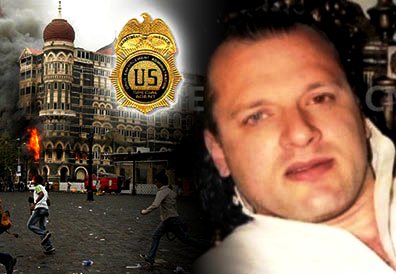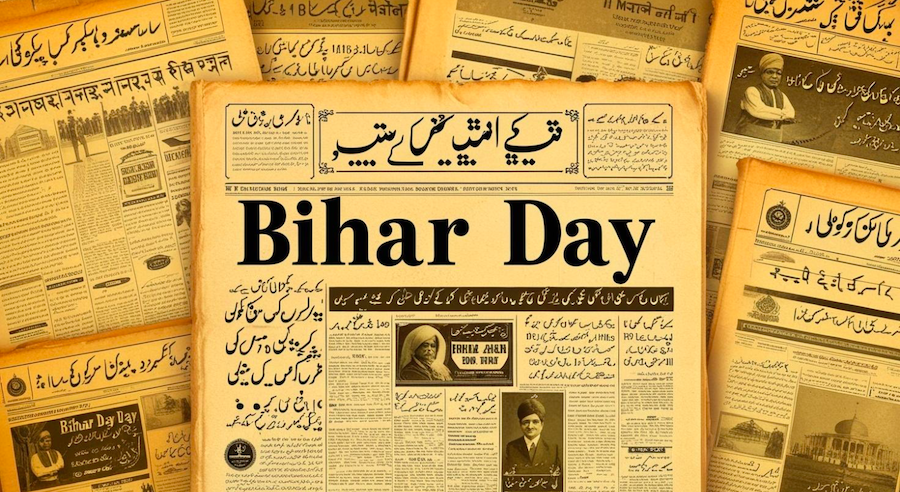Ashish Shukla for BeyondHeadlines
No one from present generation will ever forget and forgive David Coleman Headley, earlier Daood Gilani, for what he did to peace loving Indians—the scar of Mumbai Attack. Recently, he has been sentenced to 35 years in prison by an American court. Justice Leinenweber, who pronounced the sentence, also said that “Mr. Headly is a terrorist…He commits crime, cooperates and then gets rewarded for the cooperation. No matter what I do, it is not going to deter terrorists. Unfortunately, terrorists do not care for it. I do not have any faith in Mr. Headly when he says that he is a changed person now.” The judge, while accepting government motion, firmly stated that it would have been much easier to award him death sentence.
There arises certain questions in a thinking mind. Is this what all he deserved for creating a havoc in the financial capital of India in November 2008? Does it really suits to United States which is known to be the champion of human rights and democracy worldwide? Is it really going to help deter the terrorist attacks in future on United States or for that matter any other part of the world? Is it compatible with the objectives of ongoing war on terrorism? And most importantly, will it really help humanity to attain freedom from fear? To any standard of reasoning, wisdom and justice, it would be difficult to find a positive answer against any of the above questions.
This forces us to think what kind of man Headley is. In fact, analysing the behaviour of a particular human being has always been considered an uphill task. It becomes more complex when that individual is David Colman Headley. There is at least one striking similarity between Mohammad Ali Jinnah, the father of Pakistan, and the “Pakistani-American” terrorist David Headley. It is about having a dubious and complex personality. Mr. Jinnah, who is revered as Quaid-e-Azam in Pakistan, is considered by many as a staunch modernist and secular figure. However, he is the same man who, on the one hand, saw through the implementation of a communal “Two Nation Theory” and, on the other, advocated in the Constituent Assembly of Pakistan that everyone was free to go to their temple, mosques or any other places of worship and it had nothing to do with the business of the state. Indeed, he tried hard to convince and assure each and every section of society, often having contrary views and expectations, that their wishes would be fulfilled and people at large would not be disappointed in the newly established state of Pakistan. However, that never happened. Soon after his death inherent contradictions emerged and made the life of people miserable day by day. Today Pakistan is in such a critical stage that it is referred as “the most dangerous spot on world map” where no one is sure of dying his natural death, let alone living a peaceful and prosperous life.
Similarly, Headley, on the one hand, was trying to satisfy his American friends in Drug Enforcement Agency (DEA), Federal Bureau of Investigation (FBI), Central Intelligence Agency (CIA) and, on the other, worked for Lashkar-e-Toiba (LeT), Inter-Services Intelligence (ISI) and al-Qaeda. His handlers, both in Pakistan and America, thought that Headley was working on the assignments given to him. However, it seems that it was Headley who handled each of his masters (American and Pakistani) tactfully and in the end followed his heart and mind only.
Media often refers to him as a Pakistani American, half Pakistani half American, and a double agent which he of course was but that is an incomplete description of this man. He was born to a Pakistani father and an American mother and thus inherited the deadly mix of cunningness which he masterly used to achieve his targets later in life. His interrogation has revealed that he was more a Pakistani terrorist and less an American agent. He used his American connection to further the goal of militant outfits based in Pakistan. During his interrogation by Indian officials in United States, he told them how he visited India, several times without any suspicion, with a passport not having his father’s name printed on it.
He even mocked Indians with abusive words meaning fool etc. This reminds us the words of Justice (retd.) Markandey Katju who says that 90 percent of Indians are fool. Many people, including myself, criticised him for having such a view but later, when I read the book “Headley and I” by S. Hussain Zaidi and Rahul Bhatt, I realised some merit in his statement. There may not be 90 percent fools among Indians but there are many in our society. Rahul Bhatt, the co-author of the book, himself seems to qualify for the category. It is astonishing that he didn’t inform police about Headley when he got an indirect hint from him about a possible terrorist attack on Mumbai. He neither contacted police when he received a call, on 10 November 2008, from Headley who advised him not to go to South Mumbai for a few days, nor did he divulge any detail when Headley told him in December 2008 that he knew about the attack in advance. He went to police only when he got the news of Headley’s arrest in late October 2009 and found out the mentioning of his name in his various emails. Why he approached the police so late? The answer is simple, he knew that sooner rather than later he will be picked up by police and intelligence agencies for interrogation.
This justifies the merit of Markenday Katju’s argument. However, a careful analysis makes it ample clear that Headley himself was no less fool but he was the numero uno in the community of fools of the world who thought of getting a certificate to Jannat (haven) by helping terrorists to target innocent people in India in the name of Islam. After having secured a certificate for himself, now he wanted ajr (religious reward) for his late father by killing many innocent people in another Mumbai type attack in Copenhagen. This makes it ample clear that ideology of extremism makes the man blind. Headly was one such example. There are many in India also who on several occasions through their acts, Babri demolition, Godhra carnage, Bomb blasts in Malegon, Makka Masjid, and Samjhauta Express, tried to tarnish the social fabric of India. This cannot be justified on any ground.
(Author is Ph.D. Candidate, South Asian Studies, School of International Studies in JNU, New Delhi.)









